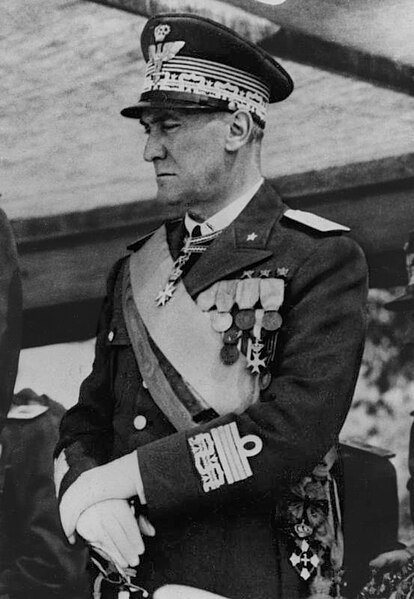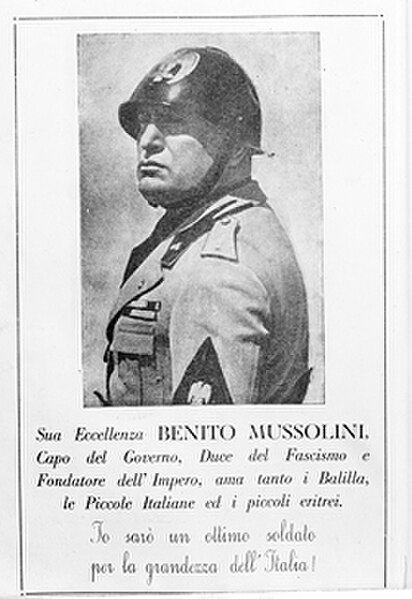Military history of Italy during World War II
The participation of Italy in the Second World War was characterized by a complex framework of ideology, politics, and diplomacy, while its military actions were often heavily influenced by external factors. Italy joined the war as one of the Axis Powers in 1940 with a plan to concentrate Italian forces on a major offensive against the British Empire in Africa and the Middle East, known as the "parallel war", while expecting the collapse of British forces in the European theatre. The Italians bombed Mandatory Palestine, invaded Egypt and occupied British Somaliland with initial success. However, the British counterattacked, eventually necessitating German support to prevent an Italian collapse in North Africa. As the war carried on and German and Japanese actions in 1941 led to the entry of the Soviet Union and United States, respectively, into the war, the Italian plan of forcing Britain to agree to a negotiated peace settlement was foiled.

German coal entering Italy through the Brenner Pass. The issue of Italian coal was prominent in diplomatic circles in the spring of 1940.
General Rodolfo Graziani.
Rommel meets Italian General Italo Gariboldi in Tripoli, February 1941.
Amedeo Guillet with his Amhara cavalry.
Fascist Italy is a term used to describe the Kingdom of Italy governed by the National Fascist Party from 1922 to 1943 with Benito Mussolini as prime minister and dictator. The Italian Fascists imposed totalitarian rule and crushed political opposition, while promoting economic modernization, traditional social values and a rapprochement with the Roman Catholic Church.
Roman Catholic procession in Corso Vittorio Emanuele II, Rome, 1931
Mussolini and Vatican delegation prior to signing the Lateran Treaty
Propaganda poster of Mussolini
Mussolini in Milan, 1930








